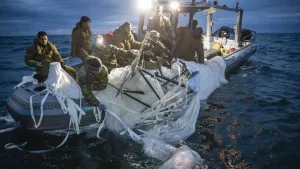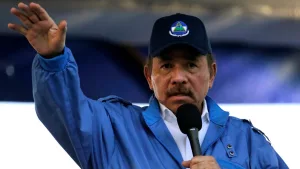On January 25, the European Union approved its 10th round of sanctions against Russia. Along with many other individuals close to Putin, the Wagner Group mercenary company members were included due to alleged crimes committed in Africa. 11 individuals and seven organizations associated with the Wagner Group were added to the travel ban list and their assets will be frozen.
The European Council said in a statement that the recent sanctions were imposed “in view of the international dimension and gravity of the group’s activities, as well as its destabilizing impact on the countries where it is active.” Josep Borrell, EU High Representative for Foreign Affairs and Security Policy, stated the following: “the Wagner Group’s activities are a threat for the people in the countries where they operate and the European Union.”
The Wagner Group in Africa
The Wagner Group is an unofficial Russian military force (often referred to as a private military company) created by Russian businessman Yevgeny Prigozhin in 2013. Since Soviet Union times, Russia has made the governments of small African countries “a valuable comprehensive offer.” This offer is something that any authoritarian leader would be interested in. It includes physical security, energy, and/or food supplies combined with investments in social networks and information operations. So far, the Wagner Group and its leader – Yevgeny Prigozhin, have been able to provide all this, at least in Africa.
What Drives the Kremlin’s Interest in Africa?
Russia’s relative support in Africa is not only due to the decline of France’s traditional influence on the continent. It is also because some of Russia’s investments in Africa have paid off, especially in the media sphere. Indeed, the fact that African countries are still hesitant to condemn the Russian invasion of Ukraine and the subsequent sanctions is a result of long-standing investment in the media sector.
In addition to media support, there are two other areas in which tight connections with the African continent benefit Putin’s Russia. Firstly, informal contacts in Africa help Russia to forge ways to evade sanctions. Secondly, shadow money flows directly help the regime and specific people in the Russian leadership to solve their problems. For example, Russia supported Sudan’s 2021 military coup to maintain its access to the country’s natural resources, particularly gold and diamonds. Around 90% of Sudan’s gold production is being smuggled out to Russia. Russia’s smuggling scheme has grown in importance since Russia launched its war on Ukraine.
Approximately 5,000 mercenaries in the Wagner Group are stationed across Africa as of 2023. This is substantially less than the 50,000 mercenaries (30,000 of whom are recruited prisoners) who are currently at war in Ukraine. According to Wall Street Journal, “Wagner’s footprint is now almost as large as the U.S.’s 6,000 troops and support personnel on the African continent.”
Last week, in the midst of the war in Ukraine, Russia conducted a military exercise with the Republic of South Africa. This exercise caused outrage in the US and Europe. As a White House spokesperson said in January, any country that now conducts military exercises with Russia, is a subject of concern.
The European Council announced that measures under the European Union’s global human rights sanctions regime had been taken in connection with the activities of the Wagner Group in the Central African Republic and Sudan. According to the US-based non-profit Organized Crime and Corruption Reporting Project, the Wagner Group in Sudan funneled resources to regime forces in exchange for privileged access to the country’s lucrative gold mining industry.
The EU has imposed sanctions on prominent Wagner representatives in the Central African Republic, including President Faustin-Archange Touadéra. The Wagner Group has been active in the Central African Republic since Touadéra asked it to support him in suppressing the uprising. The group forced French troops out of the country last year.
In Mali, the EU imposed sanctions against the local commander of the Wagner forces. Wagner soldiers in Mali have been involved in numerous acts of violence and human rights violations, including extrajudicial executions.
To compensate for the lack of fighters because of the military losses in Ukraine, the Wagner Group tried to launch a massive internet recruitment campaign. As recently as last June, separate Wagner-branded groups were created for regions all over Russia with the same contact information. The Russian social media VK became the main base for this. The offer to join the Wagner Group sounds especially tempting to those in need of finances. In certain regions of the country, this problem is especially acute for people as corruption-driven poverty in the country continues to grow.
Conclusion
The cultivation of anti-democratic ideas is one of the reasons why the Kremlin still has an interest in some of the aforementioned African countries. This continent remains one of the few places where Russia can attempt to project its image of world power, especially through the presence of the Wagner Group.
Featured image by: Pauline Bax / Crisis Group.







